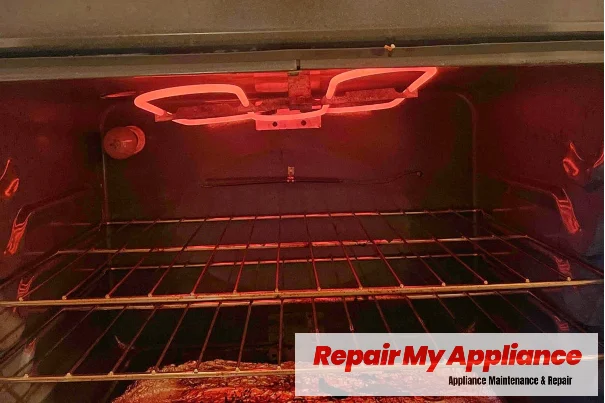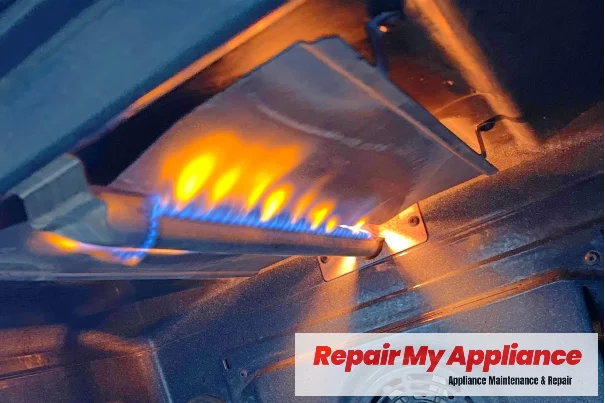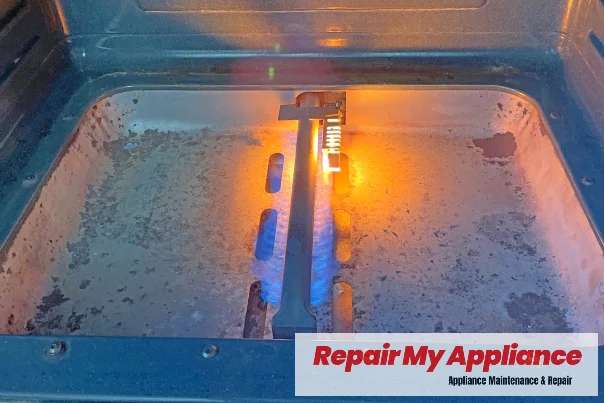Oven and Stove Repair in Edmonton, Calgary, and Red Deer
Your stove and oven are the heart of your kitchen. They help you prepare warm, home-cooked meals and bring family and friends together. But when they stop working, cooking becomes stressful and frustrating.
At Repair My Appliance, we specialize in electric oven repair, gas stove repair, and cooktop repair services across Edmonton, Calgary, Red Deer, and nearby Alberta areas. Our expert technicians are ready to bring the heat back to your kitchen—fast.
Common Stove and Oven Problems We Fix
-
Oven not heating or heating unevenly
-
Gas burners won’t ignite
-
Electric stove not powering on
-
Faulty oven thermostat or control panel
-
Strange smells or noises during use
-
Broken knobs, doors, or heating elements
Our team has the tools and training to diagnose and repair all brands and models—whether you use electric, gas, or dual-fuel cooking appliances.
Why Choose Repair My Appliance?
-
Trained and experienced technicians
-
Same-day or next-day service available
-
Service for all major stove and oven brands
-
Transparent pricing and no hidden fees
-
Fully stocked service vehicles for fast repairs
-
Friendly customer support available 7 days a week
Explore Our Services
Call to book an Expert Technician Today!
Delaying repairs can lead to bigger problems, save time, money, and hassle by calling Repair My Appliance today.
Our Edmonton appliance repair technicians are available around your schedule and can adjust according to your availability.
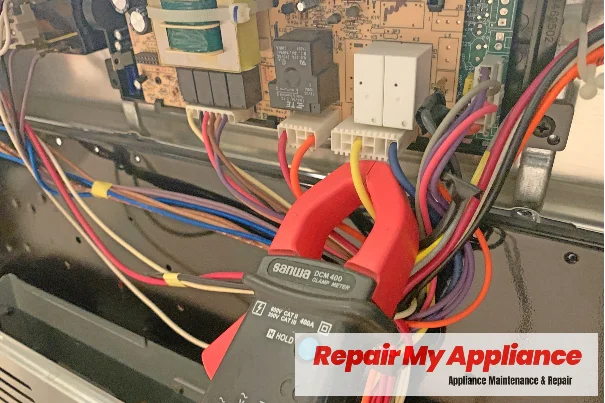
We take pride in delivering efficient, reliable, and professional oven and stove repair—so your kitchen stays warm, safe, and ready for your next meal.
Book Your Stove or Oven Repair Today
Don’t let a broken stove or oven disrupt your daily routine.
Call Repair My Appliance at 587-416-5888 or book online to schedule your repair.
We proudly serve Edmonton, Calgary, Red Deer, and surrounding areas with trusted appliance repair services—so you can get back to enjoying home-cooked meals with your family.
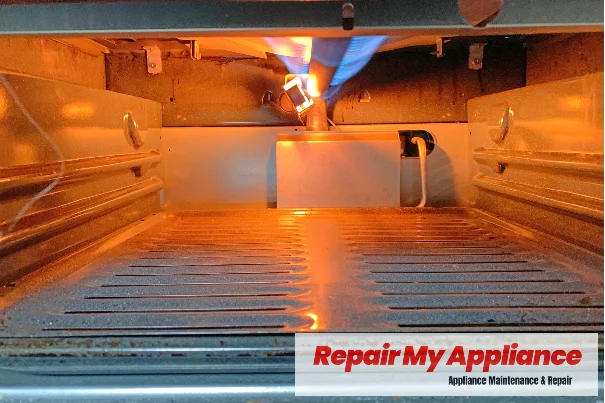
Why Choose Us?
Certified, Experienced Technicians
Same-Day Stove Repairs Available
Upfront Pricing – No Hidden Fees
Repairs for All Major Stove Brands
Gas & Electric Stove Specialists
90-Day to 1-Year Warranty on Parts & Labor
Make an appointment for stove repair now.
For prompt, expert stove repair services in Calgary, give us a call or make an online reservation. We’ll safely and reasonably get it cooking again, whether it’s gas or electric
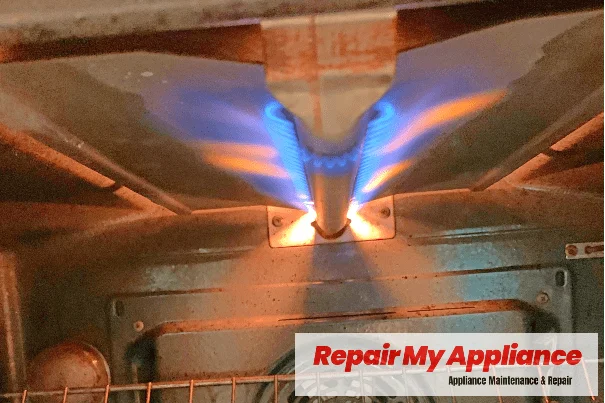
Stove Repair Services in Edmonton, Calgary, and Red Deer
Is your stove not turning on, taking too long to cook, or not heating properly? Don’t let a faulty stove disrupt your day.
At Repair My Appliance, we offer fast and dependable stove repair services for both gas and electric stoves in Edmonton, Calgary, Red Deer, and surrounding areas.
Our certified technicians are trained to repair all major stove brands, providing same-day or next-day service whenever possible.
🔧 Gas Stove Repair
If your gas stove won’t ignite, smells like gas, or has uneven flame output, it’s time to call in the experts.
We fix:
-
Burners that won’t light
-
Faulty igniters or spark modules
-
Gas leaks or unusual odors
-
Inconsistent flame control
-
Malfunctioning safety valves
Safety is our top priority. Our team follows strict standards to ensure every gas stove repair is performed safely and correctly.
⚡ Electric Stove Repair
Is your electric stove not heating, burning food, or failing to respond? We’ve got you covered.
We repair:
-
Unresponsive control panels
-
Burners that don’t turn on
-
Uneven or no heat
-
Tripped breakers or electrical issues
-
Faulty heating elements
We carry common replacement parts and aim to complete repairs during the first visit for your convenience.
Why Choose Repair My Appliance?
-
Serving Edmonton, Calgary, Red Deer, and nearby areas
-
Repairs for all major stove brands
-
Same-day or next-day appointments available
-
Honest, upfront pricing—no hidden charges
-
Fully stocked service vehicles for efficient repairs
-
Friendly, certified technicians focused on quality
Book Your Stove Repair Today
Whether gas or electric, we’ll get your stove working again—fast.
Call Repair My Appliance at 587-416-5888 or book online for reliable stove repair in Alberta.
Enjoy stress-free cooking again with expert help from your trusted local appliance repair team.
FAQ About Oven Appliance
What are some of the most common issues with ovens?
- Oven not heating up – This can be caused by a faulty element or thermostat, and may require replacement parts.
- Oven cooling off quickly – This could be due to insufficient insulation in your oven or an inaccurate thermostat setting, which may need adjustment or further investigation.
- Uneven baking temperatures – If your oven is not heating evenly, it could indicate a problem with its fan or motor, resulting in uneven cooking temperatures across the entire surface.
- Door doesn’t seal properly – A loose door seal can cause hot air to escape from the oven, leading to dry and undercooked food, as well as wasting energy. It may just need tightening or replacing depending on how damaged it is.
How can I prevent my oven from breaking down?
- Follow the manufacturer’s instructions for use and cleaning – This will ensure that all components are used correctly and that the oven is kept clean and well-maintained.
- Check for blockages or grime buildup regularly – This includes grease, dust, and other debris in the vents and on the fan blades. Cleaning these away can help prevent overheating issues.
- Have your oven serviced at least once a year – A qualified technician can check for any gas leaks or worn parts that could potentially lead to a breakdown. They can also replace sparking igniters or burner jets if needed.
- Don’t overcrowd the oven – Adding too much food can cause uneven cooking temperatures, leading to uncooked dishes or burnt food, so try to leave enough space between items when baking.
What are some signs that my oven needs to be repaired?
- Unusual noises – This could indicate a problem with the fan or another component of the oven.
- Smoky smells – Burning and smoky odors from your oven are never a good sign, and can indicate faulty wiring or gas leaks.
- Excess heat – If you feel excess heat from your oven, it could mean there is an issue with its heating elements or thermostat settings that needs to be addressed.
- Door not sealing correctly – A poorly-sealed door can cause hot air to escape and lead to uneven cooking temperatures and energy waste, which would need repair or adjustment.
What are some common oven problems that require professional repair?
- Igniter or burner jet malfunction – If your oven isn’t heating up, it could be due to a faulty igniter or burner jets, which require replacement by a qualified technician.
- Thermostat issues – Oven thermostats can become damaged or worn over time, resulting in uneven cooking temperatures and burning of food. These need to be repaired or adjusted.
- Faulty wiring and gas leaks – Broken wiring and gas leaks are not only dangerous, but can lead to fire hazards if not corrected by an experienced technician.
- Malfunctioning fan blades – Dust and debris buildup in the vent system can cause the fan blades to become clogged, resulting in loud noises while the oven is running and potential safety risks.
What are the best ways to clean my oven?
- Baking soda – Create a paste using baking soda and water, and use it to scrub away baked-on food and grease from inside the oven.
- Dish soap and vinegar – Mix equal parts of liquid dish soap and vinegar, then spray the mixture directly onto any hard-to-remove grime in the oven. Wipe down afterwards with a damp cloth.
- Commercial cleaners – Specialized commercial cleaning products can help break down stubborn, greasy residue for easy wiping.
- Oven liners – Line the bottom of your oven with an oven liner to catch spills and grease, making it easier to wipe down after cooking.




